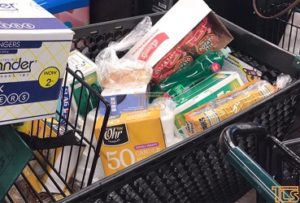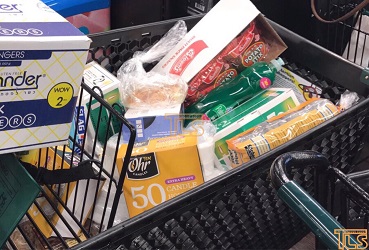 Shopping for the annual Passover Seder is becoming more convenient as the number of supermarkets dedicated solely to kosher items increases and more grocery stores have large kosher sections. The New Jersey Division of Consumer Affairs has continued to prioritize its inspections of establishments that sell kosher foods.
Shopping for the annual Passover Seder is becoming more convenient as the number of supermarkets dedicated solely to kosher items increases and more grocery stores have large kosher sections. The New Jersey Division of Consumer Affairs has continued to prioritize its inspections of establishments that sell kosher foods.
In 2016, the Division of Consumer Affairs, through its Office of Consumer Protection, inspected 504 establishments that sell kosher items, issued 10 notices of violation and collected $14,450 in fines for such violations and failure to display proper signage and failure to keep proper records.
“New Jersey consumers who keep kosher should be able to shop with confidence,” said Attorney General Christopher S. Porrino. “We are dedicated to making sure vendors comply with all laws designed to help consumers observe their holy days without having to worry about whether the kosher foods they bought have been properly prepared.”
More stores are featuring kosher sections and several large kosher supermarkets have begun operations in New Jersey, and the need for kosher signage, supervision and inspection is growing.
“The inspections by the Division are designed to make sure that businesses describing themselves as ‘kosher’ are operating within the law,” said Steve Lee, Director of the Division of Consumer Affairs. “While these inspections are done throughout the year, Passover presents us with an opportunity to remind both businesses and consumers of the importance of following these laws.”
The state does not seek to define the meaning of “kosher” by statute or regulation. Instead, the state, through its consumer protection laws, requires establishments claiming to be kosher to display notices saying what the establishment means by kosher, so that consumers can make informed purchasing decisions.
These notices must be specific about such things as whether a rabbi supervised and approved the food and its production, whether a kosher organization certified the process or whether there was no supervision. The store must also disclose the name of the certification organization or rabbi, how often certification inspections are done and whether the supervisor requires all ingredients to be kosher supervised.
If a business is selling food represented as “Kosher for Passover,” a disclosure notice must be posted at least 30 days prior to the holiday. If a caterer takes over a facility solely for Passover, a disclosure must be posted as soon as the caterer assumes control of the facility. The disclosure must remain in place until the end of Passover.
New Jersey’s Kosher Food Protection Law and Kosher Food Regulations protect the kosher-buying public by requiring kosher food sellers to disclose important information to the public, as set forth below:
- Packaged foods may only bear a kosher symbol (such as the “OU” used by the Orthodox Union) with prior written authorization from the person or agency represented by that symbol. Supermarkets and other businesses that sell such foods in sealed containers may rely on the manufacturer’s or distributor’s representation that the proper approval was obtained.
- Businesses that use meat and poultry must disclose additional information including how the meat or poultry was slaughtered, cut and prepared for sale.
- Establishments that prepare foods must disclose whether they use separate utensils for meat, dairy, and ‘pareve’ items; and whether they keep separate working areas for the preparation of meat, dairy, and ‘pareve’ items.
- Establishments that represent themselves as being “under kosher supervision” must disclose upon request any items not under supervision.
The Division’s Office of Consumer Protection is charged with the responsibility of inspecting establishments to ensure compliance with the law and investigating and enforcing kosher food violations.
Information for Consumers and Kosher Establishments:
Consumers, and establishments that sell kosher foods, can find additional information at the Division of Consumer Affairs’ website:
Frequently Asked Questions on Buying Kosher Food in New Jersey
Consumer Brief: “Buying Kosher Food”
Information for Kosher Food Establishments
Consumers who believe they have been cheated or scammed by a business, or suspect any other form of consumer abuse, can file an online complaint with the State Division of Consumer Affairs by visiting its website or by calling 1-800-242-5846 (toll free within New Jersey) or 973-504- 6200.


Gut Woch to everybody. I just read the long article about Kashrus for Pesach, Baruch Hashem the stores that have kosher products for Pesach have increasd, But my QUESTION is what about the prices they seem to increase before every Jom Tov and especially before Pesach, And I am sure it is especially hard for large families, I am almost sure that the store owners also have to pay more, But I am also sure that they dont go up as much as the customer in the store has to pay, Lets give everybody a break, CHAG KOSHER VEI SAMEACH to everybody,